Results
-
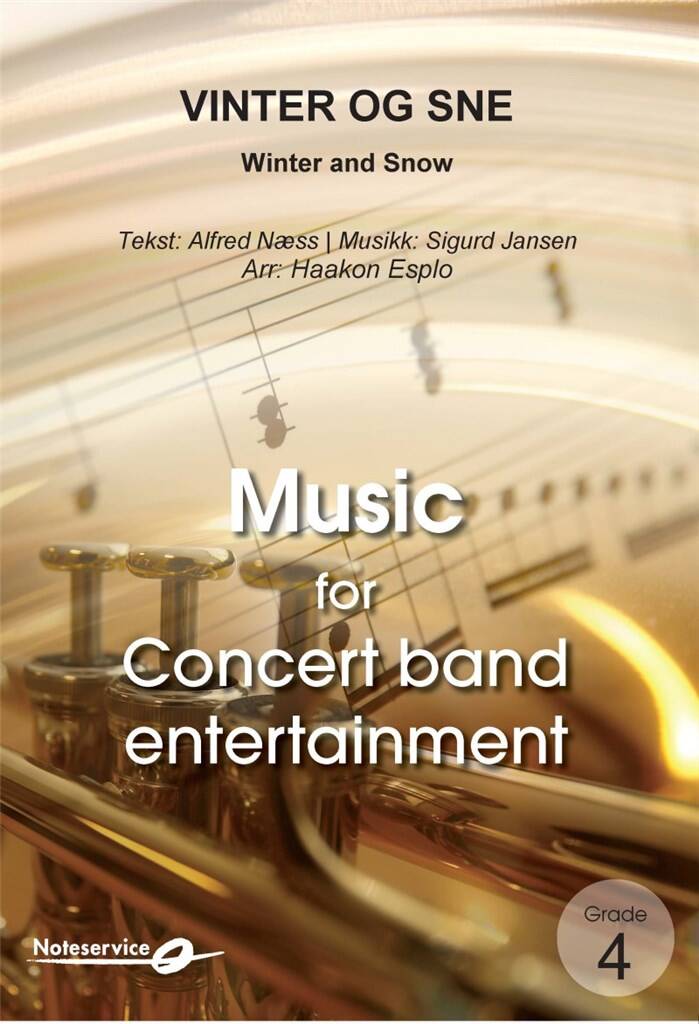 £149.40
£149.40Vinter og sne - Næss
"Winter and Snow" was written by Sigurd Jansen and Alfred Nss and were recorded and released on single by Norwegian singer Wenche Myhre in 1966. The single was released in connection with the Nordic World Championships held in Oslo that year. The well-known song was also recorded in new version in 2011 by Wenche Myhre and included on her album "66".
Estimated dispatch 7-14 working days
-
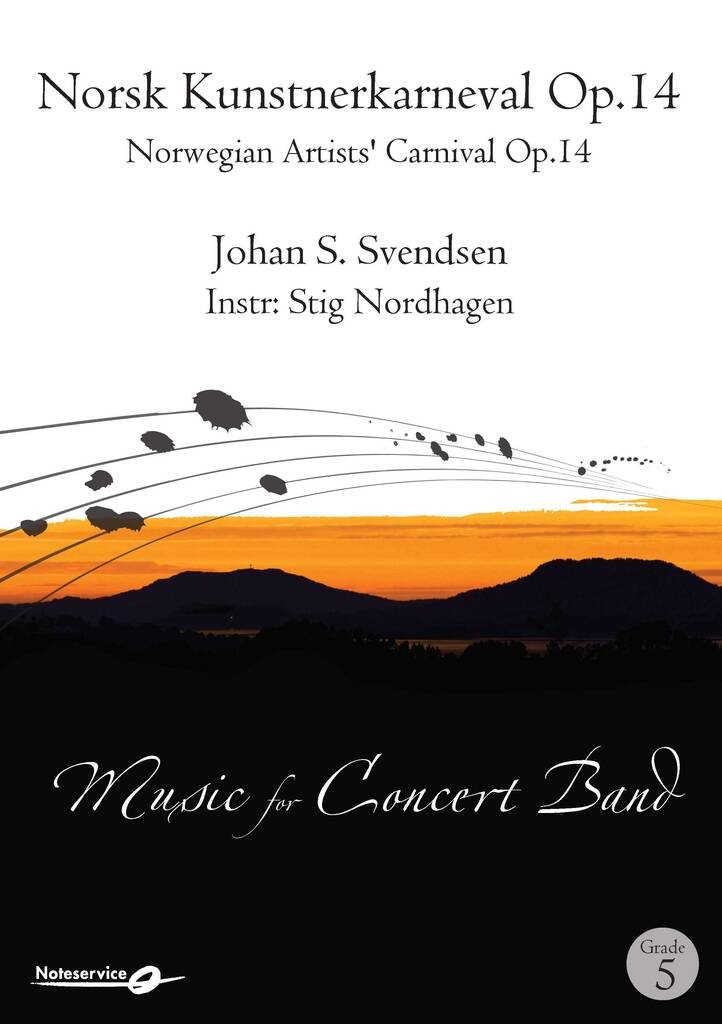 £218.30
£218.30Norsk Kunstnerkarneval Op.14 - Johan S. Svendsen
This well-known work was composed in Christiania in 1874 for a burlesque Carnival in "Kunstnerforeningen".An early title for the work was "Bryllup paa Dovre". The manuscript score and parts at The National Library in Oslo of the early version with this title have much more music than the version printed by C.F. Peters, Leipzig in 1881. The form in this first version was ABA with an additional trio part that later were discarded. In the trio Svendsen used the melody Sterreisen (Os har gjort kva gjeras skulle) from Lindeman's collection of Norwegian Folk Tunes. (Vol. I/115). In the A-part a wedding tune (Bruraslaatten) from Sogn is used (Lindeman Vol. I/476). The Carnival's literary theme was the connection between the cold north and the warm south. Musically the south is represented in Svendsen's music by Raffaele Sacoo's melody from 1835 "Te voglio bene assai".I believe that if Norwegian quality music from this period is going to be performed, it must at least be available. There must be editions for modern instrumentations with full scores. I do this as my contribution to expand and enrich the repertoire for Concert Bands.- Stig Nordhagen -
Estimated dispatch 7-14 working days
-
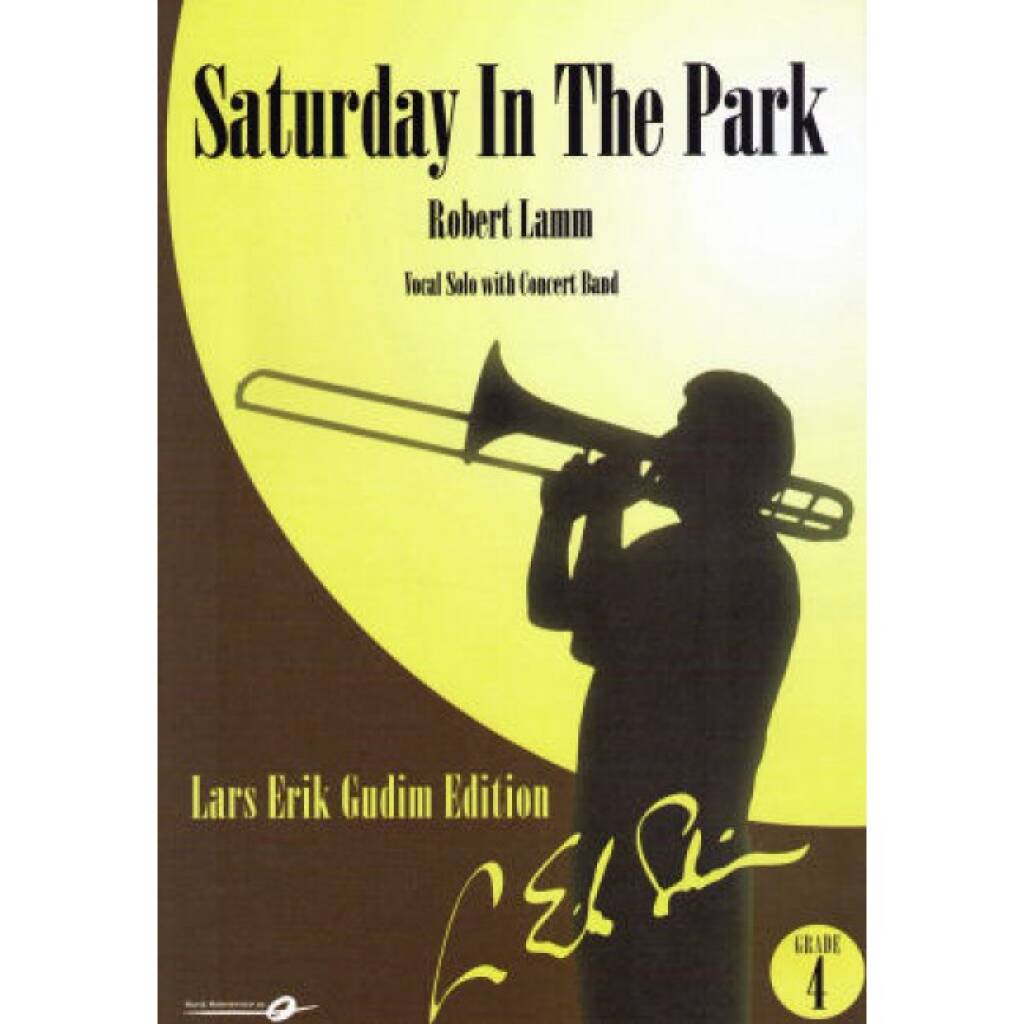 £149.40
£149.40Saturday in the Park - Robert Lamm
This is on of the group Chicago's most popular ballads, still doing great after beeing recorded in 1972 on their fifth album. Chicago's main songsriter, Robert lamm, wrote this after a particulary exhilarating 4th of July spen in New York's Central Park, where there were steel drum players, singers, dancers and jugglers. This was originally used as a soundtrack to an unreleased home video. It became the group's first gold single.
Estimated dispatch 7-14 working days
-
£131.99
Instrumentalstze (Aus Dem Oratorium "Saul") - Georg Friedrich Händel
Handel's Oralorio "Saul", composed in 1739, contains a series of instrumental movements which provide commentary on the action. Composers have often written works in the form of suites from these movements. Handel's blocks of polyphonic music are also particularly suitable for wind band. His orchestral suites were usually performed in Ihe open air. Many of his themes rank among the great inventions of musical history. They give his music dignity and greatness and at the same time they remain popular in character. The instrumental movements from 'Saul' are suitable for concerts, including those in churches, for serenades and for contests from intermediate to advanced level.
Estimated dispatch 7-14 working days
-
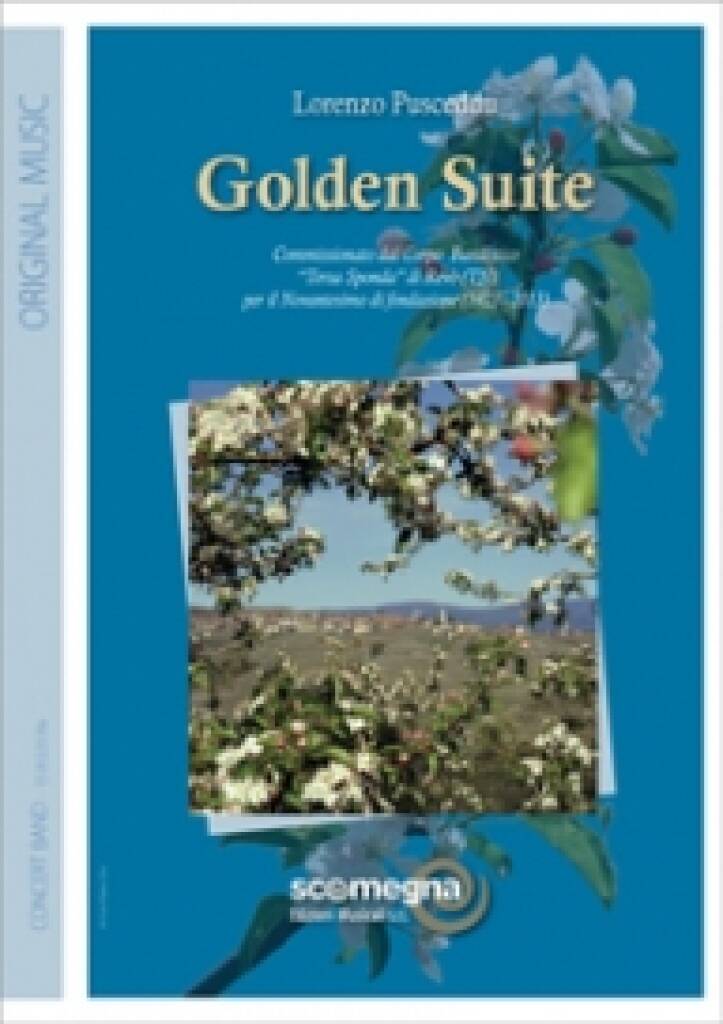 £98.20
£98.20Golden suite - Lorenzo Pusceddu
In the Non Valley, during spring when the water of Lake Santa Giustina starts lowering, the old main traffic system and the steep terrain with the Groppello vineyards resurface. The majestic and uncompromising Mount Ozolo dominates this landscape and acts like a guard of the fertile valley. The people who had to walk along the Regiai road to leave their village in search of fortune keep those memories very alive. Their trip started by descending the valley along the Regiai road, walking through the luxuriant vineyards that were supported by dry stone walls, downright mosaics of stones built to help the growth of the vineyard. Those who left and casted a glance at their village for one last time could catch sight of the Ozolo, the mountain of the primordial man, of hunting and friendship. They also had to cross a bold stone bridge that still exists and is jealously safeguarded by the lake water, which has also sunken together with the bridge hectares of vineyards of Groppello, the vine of the traditional and vigorous wine produced in the Non Valley. Its name is said to come from the typical structure of the grapes, which are compact and resemble a thick tangle ("groppo" in local dialect), almost a defense against the shifting temperatures of the fall that gives the grapes a bright color and a honey-like sweetness. The production at the end of the nineteenth century was of circa fifty thousand hectoliters of wine, but today it has reduced to only five hundred hectoliters produced by about thirty courageous farmers who want to preserve an authentic patrimony of taste and flavor. These wine makers have the will to safeguard a vineyard that is at risk of extinction and work the land as they used to do many years ago: with hoe, shovel, and a lot of sweat! The Groppello vineyard extended to the bottom of Mount Ozolo, but on the higher slopes the more rigid temperatures allowed only for the growth of pines, spruces, larches, broad-leaved trees, and pastures. In the course of the years, this typical vegetation of the mountain has provided the population with the raw material to build houses, to keep warm during the winter, and to feed the animals. Mount Ozolo has also been since ancient times the "sacred" mountain of the valley, and today it has become a game preserve and a site of socialization for young people who know how to love and respect nature.
Estimated dispatch 7-14 working days
-
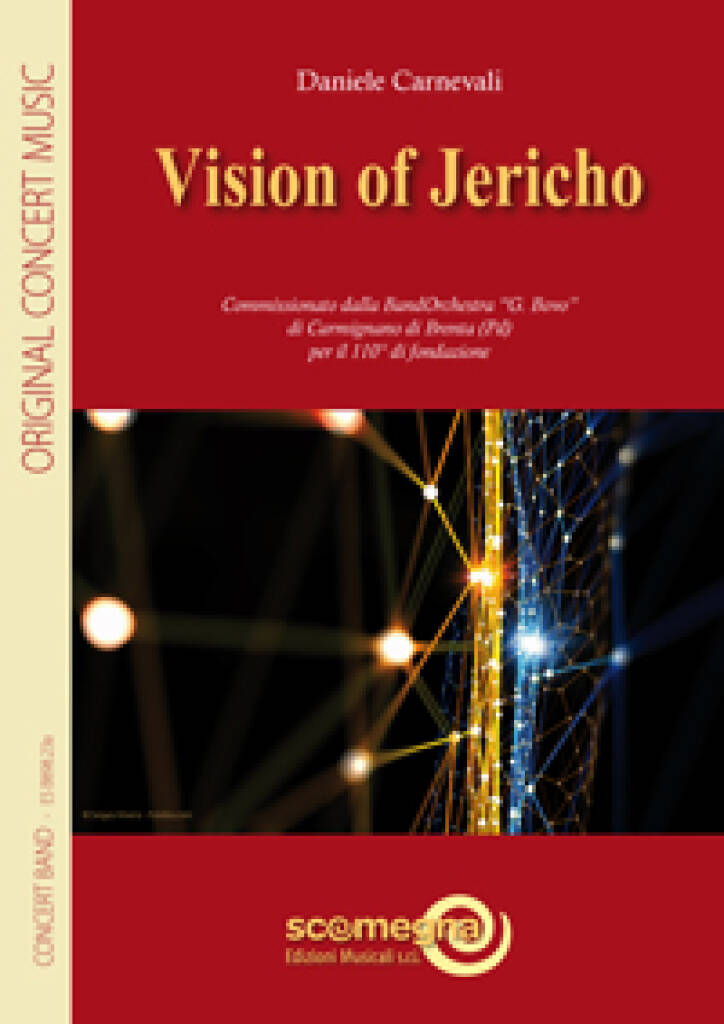 £113.30
£113.30Visions Of Jericho - Daniele Carnevali
The piece, commissioned by the "Banda Orchestra G. Bovo" from Carmignano di Brenta (Padua), was inspired by two paintings by the artist Galeazzo Vigan, which were in turn commissioned to celebrate the anniversary of the founding of the band. The two paintings, entitled "Gerico 1 and 2", their mirror-like arrangement, the alternation between fullness and fineness and the use of numerical symbols (especially the repetition of the number 7) are used as musical material in the formation and subsequent development of the themes. Similarly, the formal mirror-like arrangement of the allegro vivo and the alternation of the monodic and chordal styles (fineness - fullness) seek to create a bond between the pictorial and musical languages.
Estimated dispatch 7-14 working days
-
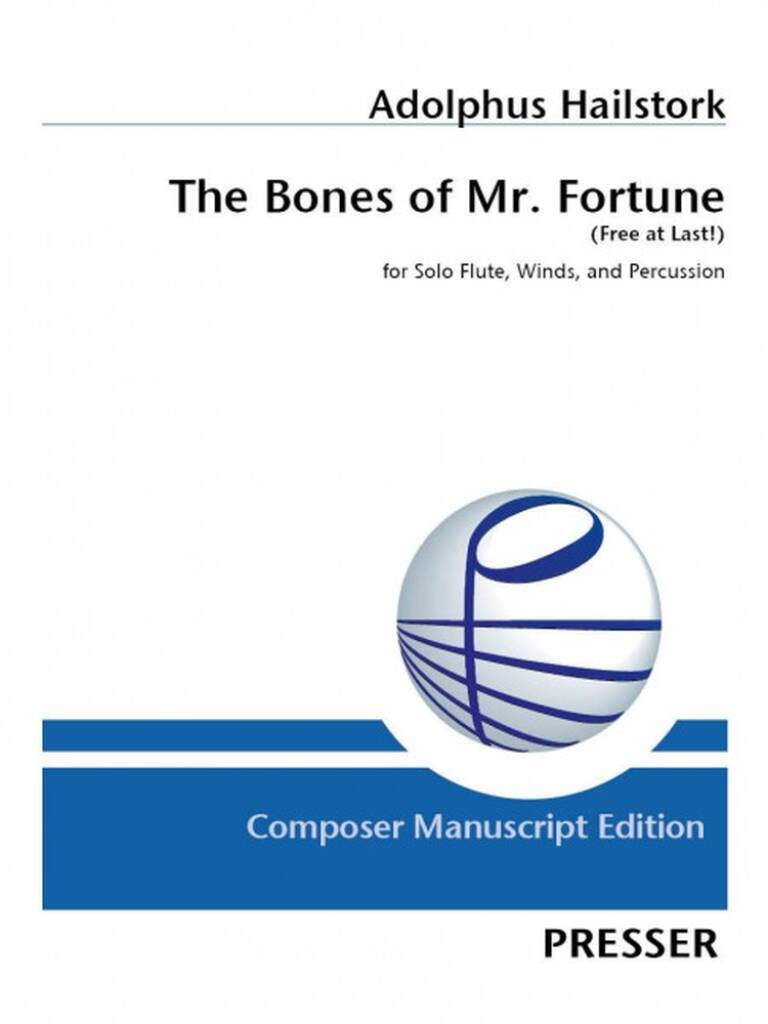 £168.50
£168.50The Bones of Mr. Fortune - Adolphus Hailstork
THE BONES OF MR. FORTUNE (FREE AT LAST!) is an 11-minute concerto-like work for solo flute accompanied by symphonic winds and percussion - perfect to play with band or with orchestra, as well as with the composer's own piano reduction (114-42424). The work features lengthy cadenzas, and exhilarating dance-like sections with the ensemble. Hailstork describes the historical inspiration: abused in life and death, an enslaved man (Mr. Fortune) was owned by a surgeon who preserved his skeleton to study anatomy. The bones remained with the doctor's family for generations, and were given a proper burial that made national news in 2013, 215 years after Mr. Fortune's death.
Estimated dispatch 7-14 working days
-
£67.95
The Glory Of The Yankee Navy - John Philip Sousa
Not all of Sousa's marches were intended to be used in parade marching. This great march was intended by Sousa to be a sit-down, or concert march.
Estimated dispatch 7-14 working days
-
£224.50
Eulogy - Sydney Hodkinson
Hodkinson's Eulogy was written to commemorate close friend and fellow composer Donald Erb, who passed in 2008. Described as a brief and mournful lament, the Eulogy includes, says Hodkinson, vernacular (jazz) harmonies that were among Mr. Erb's favourite sounds. For advanced performers. Dur. c. 7'
Estimated dispatch 7-14 working days
-
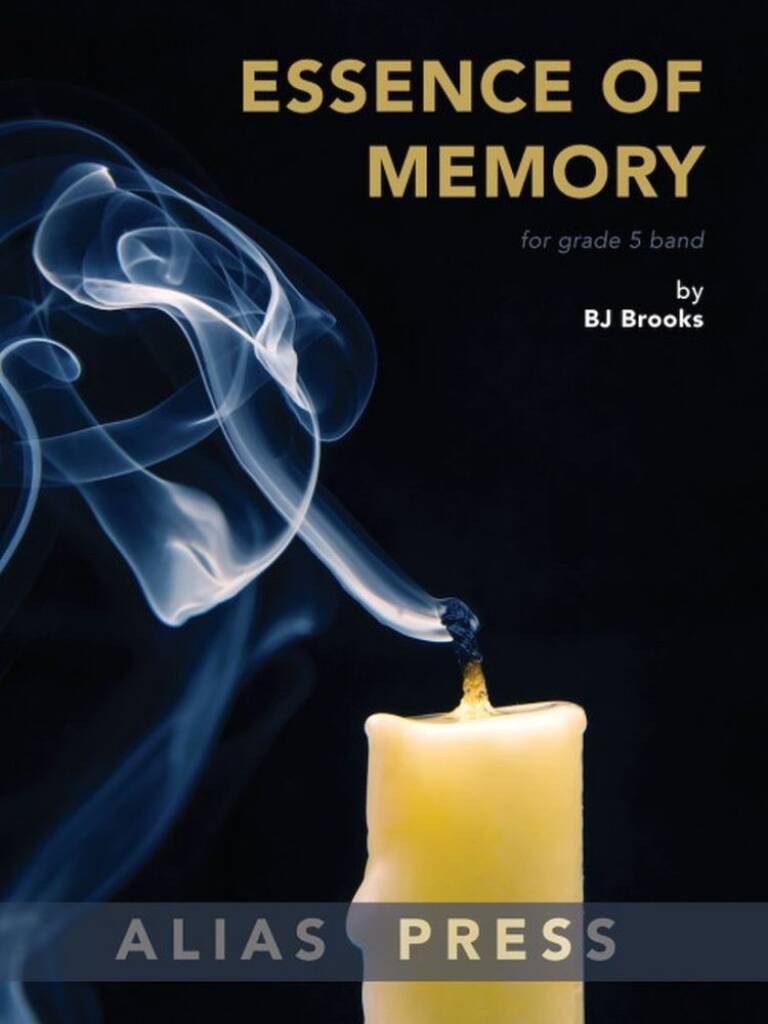 £75.50
£75.50Essence of Memory - BJ Brooks
In the fall of 2021, as occurs countless times across the United States, band director Darin Johns was traveling with his marching band to a Friday night football game. Tragically, a wrong-way driver struck the Andrews Band bus, taking the lives of both Darin and the bus driver. Over the next few months, tributes to Darin came in waves, culminating in a 1,000-member parade with 30 different bands at Christmastime. The Association of Texas Small-School Bands, of which Darin and the Andrews Band were a part, commissioned me to write a piece in honor of Mr. Johns. The music reflects the waves of memory that one experiences when contemplating the deepest of thoughts. First nebulous, sometimes sharply focused, resonating motifs, highs and lows. The four-chord chaconne figure is the unifying core of the work. It grounds the various melodies as they enter and return, sometimes densely paired, sometimes transparently isolated. The themes are structured as an arch form ABCBA, but as they recur, they are added together, giving them more density, as if the memories overlap, before the calmness, first heard as an ethereal haze, recurs.
Estimated dispatch 7-14 working days
